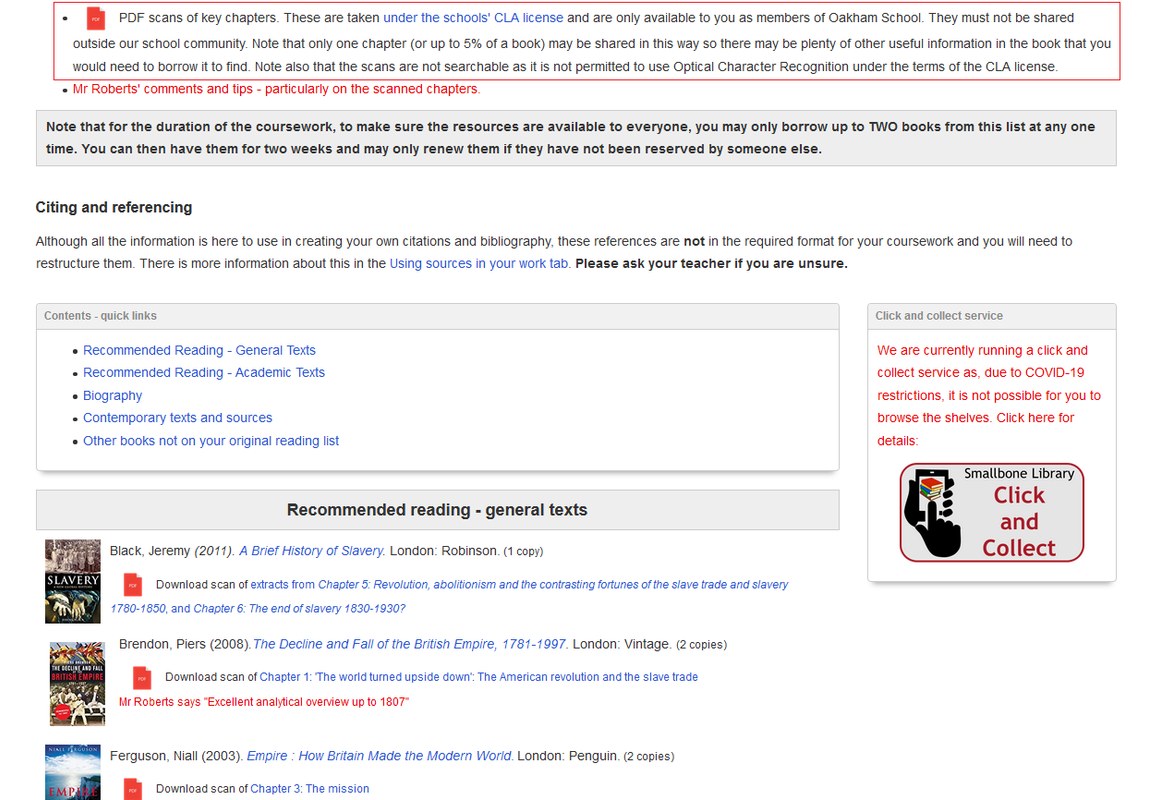Thanks, Elizabeth.
This raises an important point, from two perspectives.
Firstly, the systematic and progressive development of inquiry skills, which, as Mary-Rose points out, includes dealing with different types of sources and the organization of information within those sources. If through design and/ or necessity children miss the opportunity to acquire specific developmentally-appropriate inquiry skills, their foundation becomes unstable and their progress is hampered. We either, then, need to compensate for this later, or differently (see below).
Secondly, facilitating access to the print collection. Although aimed at Upper School students, the following LibGuide is an example of how we have gone about facilitating access to our superb print collection for A-level Historians: Slavery (A-level History NEA).

We have used a similar approach, except with online PDF resource packs (see Resource pack in the Forum), with Years 6, 7, 8 and 9.
This can also serve a pedagogical purpose, in that we can teach about about different types of sources and the organization of information within those sources while also providing them with information from those sources. The following two Topics and associated LibGuides make this clearer:
All of this should be possible, with or without LibGuides, in a primary setting.
Of course, this all takes time, but the re-use value is very high and you will see that much of what we are doing is the result of many years of work.
I am confident, though, that as our shared pool of knowledge and resources grows, so will our efficiencies.



